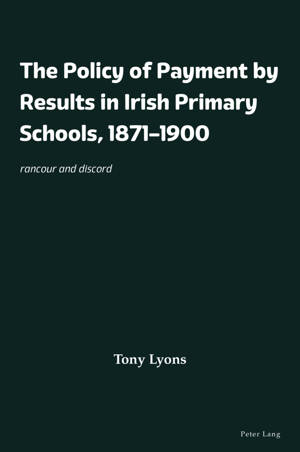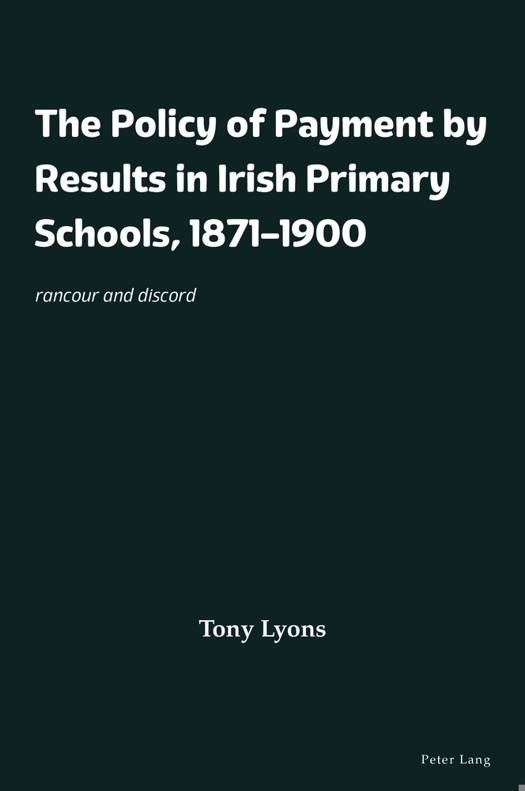
- Retrait gratuit dans votre magasin Club
- 7.000.000 titres dans notre catalogue
- Payer en toute sécurité
- Toujours un magasin près de chez vous
- Retrait gratuit dans votre magasin Club
- 7.000.000 titres dans notre catalogue
- Payer en toute sécurité
- Toujours un magasin près de chez vous
The Policy of Payment by Results in Irish Primary Schools, 1871-1900
Rancour and Discord
Tony Lyons
Livre broché | Anglais
103,45 €
+ 206 points
Description
This book outlines the principal features of the Payment by Results policy, first introduced in England in 1862. It draws attention to some of the positive aspects of the system but it also considers the more salient features of a system that preyed heavily on both pupils and teachers. Inspectors were used as agents of its implementation, resulting in a divergence of views between them and the teachers. Very few regretted its demise in 1900 when it was replaced by the Revised Programme, a much more child-centred curriculum. It was a system of schooling rather than of education, and it served very few admirably.
Spécifications
Parties prenantes
- Auteur(s) :
- Editeur:
Contenu
- Nombre de pages :
- 206
- Langue:
- Anglais
Caractéristiques
- EAN:
- 9781803741796
- Date de parution :
- 26-12-23
- Format:
- Livre broché
- Format numérique:
- Trade paperback (VS)
- Dimensions :
- 152 mm x 229 mm
- Poids :
- 303 g







